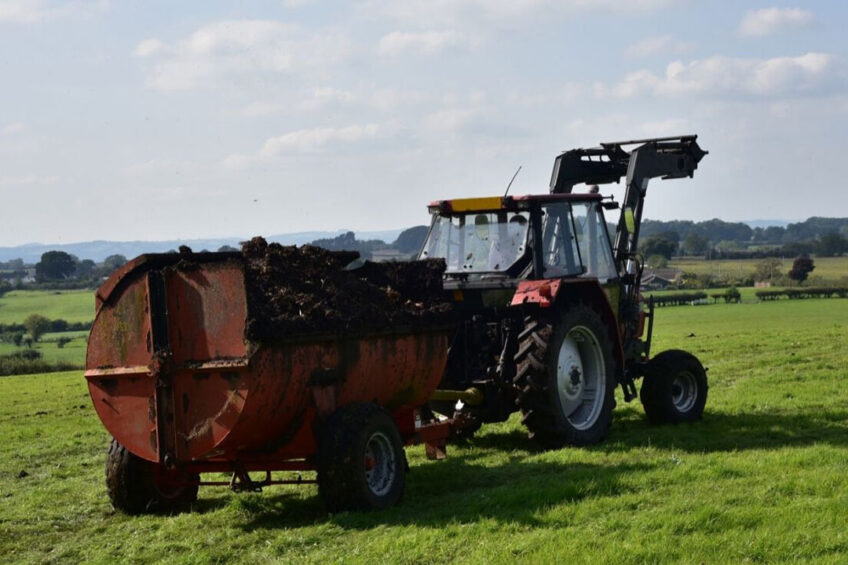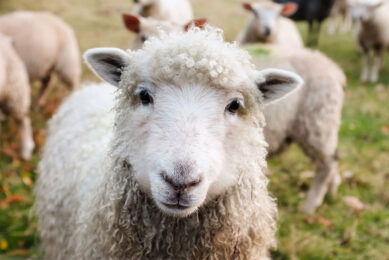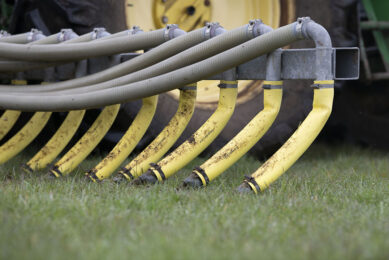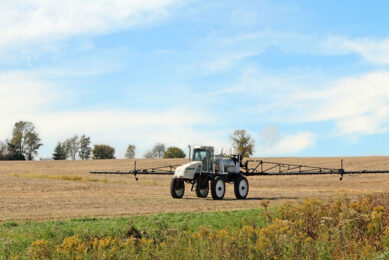UK: New rules give clarity on organic manure spreading

Arable farmers have breathed a sigh of relief following the publication of new statutory guidance that clarifies how the Environment Agency should apply the Farming Rules for organic manure spreading in autumn and winter.
Following industry lobbying, the Department for Environment, Food and Rural Affairs (Defra) has published new guidance on how farmers should comply with the regulations. The key points are:
- The new guidance clarifies that the government does not intend to ban autumn manure spreading through the Farming Rules for Water.
- It clarifies conditions when it is not appropriate for the Environment Agency to sanction farmers when they spread manure in autumn and winter months.
- It stresses the government will provide further financial support through new slurry storage grants, which will be launched later this year, enabling farmers to get to 6 months storage capacity.
Concern of interpretation of regulations
Tom Bradshaw, NFU deputy president, said many farmers had felt deeply concerned about how the regulations had been interpreted by the Environment Agency: “Over the past year, the NFU has played an important role bringing together the farming industry, Environment Agency and Defra to agree that organic manures can be spread in the autumn, so crops are receiving vital nutrients they require.
“This new guidance will enable farm businesses to plan with confidence and importantly, drive improvements that benefit soils and plant health as well as water quality.”
Manure spreading is not disposal but recovery
The union’s arable crop board has been calling for improvements and clarification for some time, and has argued that now more than ever, applying manures is not an exercise in disposal but about vital nutrient recovery and boosting the organic matter content and health of soils.
Nutrient management plan
Farmers will have to have a nutrient management plan on their farm but the NFU says this does not need to be onerous and there are simple tools available to allow producers to calculate and plan the nutrient requirement of grass or crops over the coming year, showing that their applications of manures and/or fertiliser are tailored to meet this.
Autumn application rule
Autumn applications are allowed although a grower will not be able to apply on ground which will remain bare until the spring. It will be expected that they will have a crop, or a cover crop of their choice, which should be planned to have established by 15 October. This is required to mitigate the risk of run off and leaching from the field over winter.
Readily available nitrogen
There will also be a distinction between high-RAN (Readily Available Nitrogen) and low-RAN manures, with the distinction drawn at 30% RAN. The RAN of the manures being used can be decided on the basis of industry standard figures, or testing. For low-RAN manures, like some slurries and digestates, there will be an application rate limit of 30m cubed/ha or 8t/ha for high-RAN poultry manures, per application between 1 August and the end of February, depending on tillage or grassland and soil type.
Phosphorus indices
Defra has also included some regulation of soil P index in its guidance, saying farmers should plan to avoid applying organic manures that raise the P index about index level 3 or target levels for the soil and crop over a crop rotation. They may be able to apply, if they can demonstrate that it is not reasonably practical to comply with this – for example where there is no opportunity to export or treat manures to avoid this risk.
Urea future
As well as new slurry guidance, Defra has announced a one year delay to the launch of an industry farm assurance scheme to reduce ammonia emissions from urea fertilisers. It followed a consultation last year. Defra said the delay will help farmers manage to manage their costs and give them more time to adapt.
When it comes into operation in 2023, it will be delivered through Red Tractor Farm Assurance schemes and Fertiliser Advisers Certification and Training Scheme (FACTS) advisers. The new Red Tractor standards will require scheme members to:
- Restrict use of untreated urea from 15 January to the end of March each year
- Use urea treated to reduce ammonia emissions or apply in line with guidance from FACTS trained advisers throughout the year.
Regulations will be introduced if the scheme does not achieve the ammonia reductions needed, said Defra.
Robert Sheasby, Agricultural Industries Confederation (AIC) chief executive, welcomed the decision not to ban urea: “We believe working together across the industry to deliver greater Nitrogen Use Efficiency for all nitrogen fertilisers is the best route forward. By utilising existing farm assurance structures farmers will be able to retain the use of solid urea, providing flexibility to use the right product at the right time to minimise environmental impact, whilst ensuring healthy plant growth and a competitive fertiliser sector.”
Addressing rising costs of fertiliser
The Department is acutely conscious of the rising costs of fertiliser over the past few months due to the war in Ukraine and at the end of last week it held an industry round-table to look at some of the issues that included representatives from the AIC, NFU, Agriculture and Horticulture Development Board, Country Land and Business Association and Tenant Farmers Association.











